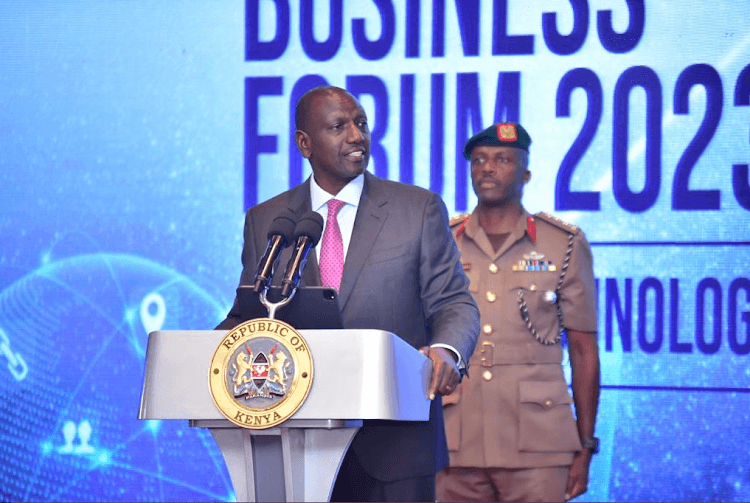The EAC-Comesa-SADC tripartite agreement will be in place by the end of April 2023, President William Ruto has said.
This means 28 African countries will trade as a bloc with the European Union.
Pitching Kenya as the preferred investment hub for EU investors on Tuesday, President Ruto said Nairobi is a strong participant in the Tripartite Trade Agreement encompassing EAC, Comesa and SADC.
“The tripartite agreement was signed in 2015 and unfortunately for the seven years or so, we have not concluded it to the satisfaction of the EU requirements,” the President said in Nairobi during the EU-Kenya Business Forum.
To address this challenge, Ruto said he sent Trade CS Moses Kuria as his special envoy to 11 capitals to meet with the respective presidents.
“He [Moses Kuria] has been to Egypt, Angola, Comoros [new AU chair], Uganda, Tanzania, Lesotho South Africa …, and now I can promise with confidence, by the end of April, we will have the tripartite agreement in place,” Ruto said.
This, he said, will offer the 28-countries bloc the advantage of 750 million people and an economy of $1.8 trillion.
“This is a great opportunity that as the EU looks at Kenya, you are also looking at the tripartite agreement and a huge population and economy to deal with. We can now have a conversation of equals,” he said.
Signed in Sharm EI Sheikh, Egypt, on June 10, 2015, the deal seeks to establish a tripartite free trade area among Comesa, SADC and the EAC economic communities.
To achieve this, the deal committed to resolving the overlapping memberships of the member states to other blocs, reducing the cost of doing business and creating an environment conducive to the private sector.
It was also to liberalise trade in goods and services, promote industrial development, facilitate the movement of business persons, support the strengthening of infrastructure, promote competitiveness, build the capacity of MSMEs, and deepen integration among partner states.
The ratification, however, faced headwinds over failure to agree on various issues such as the contentious rules of origin and tariffs. The deadline was pushed to December 2017 and is yet to be in place.
Speaking during the handover of the chairmanship of the tripartite task Force to Comesa Secretary General Chileshe Mpundu Kapwepwe in June last year, EAC’s Peter Mathuki said the development of the guidelines for the movement of goods and services and protocol on competition policy had been finalized awaiting adoption by policy organs.
However, there remained outstanding issues such as the completion of the exchange of tariff offers, finalisation of some chapters on rules of origin, on textiles and automotive products mainly, intellectual property rights and trade in services.
Other pending areas were the development of instruments to implement the Tripartite Protocol on Competition policy and specific guidelines on perishable goods.
Speaking at the EU-Kenya meeting, CS Kuria said Kenya remains geo-strategic as the gateway to East and Central Africa, and a central player in the three overlapping RECs.
“That is why we have pioneered the efforts to bring together SADC, EAC and Comesa as a vital stepping stone towards the African Continental Free Trade Area,” Kuria said.
“We believe, as a country, the journey towards AfCFTA has commenced well but having a modular step-by-step approach is going to fast track this process.”
He said they are encouraging other economic blocs from the West and North Africa —Ecowas, Sahel and Maghreb — to take similar measures so as to fast-track African integration efforts.















